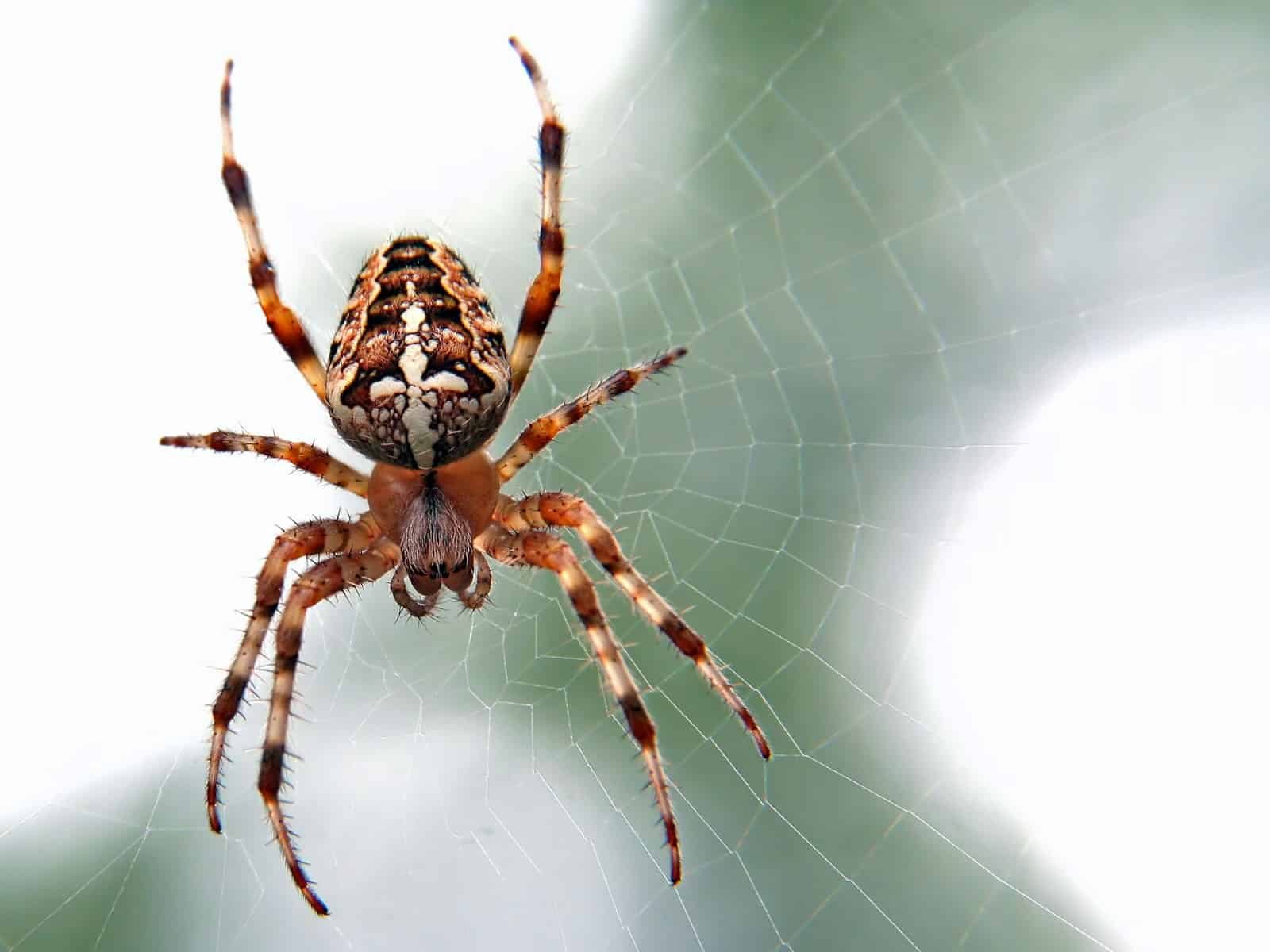Spiders can be creepy and unwelcome guests in many homes. Luckily, there are simple and natural ways to keep them away. Peppermint oil, for example, is a popular choice. Add 15 to 20 drops to water and spray it around your house. It works well because spiders dislike strong scents.
Another effective method is using diatomaceous earth. Sprinkle this natural powder into cracks and crevices. It helps to deter spiders by drying them out. Chestnuts are also known to be effective. Place them on windowsills or near doorways to keep spiders at bay.
Keeping your house clean is an important step too. Regular dusting and vacuuming remove webs and eggs. Sealing gaps in windows and doors can also stop spiders from getting inside in the first place. With these easy steps, you can make your home spider-free naturally.
Understanding Spider Repellents
Spider repellents can be natural or synthetic and affect the environment differently. Spider behavior and the safety of repellents are also important to consider.
Natural vs Synthetic Repellents
Natural repellents use ingredients like peppermint oil and dish soap. These are popular because they do not have harmful chemicals. For example, peppermint oil smells good to humans but spiders hate it. Natural options are usually safer for pets and children.
Synthetic repellents often have strong chemicals to keep spiders away. They might be more effective but can be toxic. Synthetic products are often more long-lasting and can cover larger areas. People might prefer these for serious infestations.
| Type of Repellent | Example Ingredient | Main Positive | Main Negative |
|---|---|---|---|
| Natural | Peppermint Oil | Safe for Pets | Needs Frequent Application |
| Synthetic | Chemical Compounds | Long-Lasting | Can Be Toxic |
Impact on Ecosystem and Environment
Natural repellents usually break down quickly and do not harm the environment. They are often biodegradable and do not leave toxic residues. Natural options are better for gardens and outdoor areas.
Synthetic repellents can sometimes harm other insects or animals. Chemicals can build up in the environment and may take longer to degrade. Synthetic repellents can also seep into soil and water systems, posing risks to plants and aquatic life.
Overview of Spider Behavior
Spiders are not insects. They belong to a group called arachnids. They have eight legs and many build webs to catch their prey. Spiders usually hide in dark, quiet places. They come indoors searching for food and shelter.
Understanding spider behavior can help in choosing the right repellent. Most spiders are harmless and help control other pests. They are attracted to places with lots of small insects.
Safety and Toxicity Concerns
Natural repellents are often safer for humans and pets. Essential oils like peppermint should still be used carefully. They can irritate the skin if undiluted.
Synthetic repellents can be more effective but pose a higher risk. They may contain chemicals harmful if inhaled or ingested. Always read and follow the labels for any repellent. Keep all repellents out of reach of children and pets. Use in well-ventilated areas to minimize exposure.
By considering the type of repellents and their impact on our surroundings, the choices can be better tailored to individual needs and environments.
Effective Spider Repellent Strategies
There are many ways to keep spiders out of your home. Some methods use chemical products, while others are natural solutions or involve simple preventive steps.
Chemical Repellents and Their Use
Chemical repellents are a strong way to get rid of spiders. Bifenthrin is a popular choice. It works fast and is long-lasting.
- Ortho Home Defense is one example. It can cover large areas and acts quickly.
- Professional-grade products are also available. These need to be used with care and according to instructions.
Always check the label and follow safety tips. Keep these products away from kids and pets.
Natural Repellents and DIY Solutions
Many natural repellents work well too. They can be made at home without the need for harsh chemicals.
- Peppermint oil: Mix 10-15 drops in a spray bottle with water. Spray around rooms and entry points.
- Lavender and tea tree oil: Similar to peppermint, mix with water and spray.
- Cedar, citrus, and cinnamon: These essential oils smell strong to spiders. Use them in problem areas.
- A mix of white vinegar and liquid dish soap can be sprayed to kill spiders on contact.
Homemade solutions are generally safe and also keep your home smelling fresh.
Preventive Measures and Best Practices
Keeping spiders away involves some cleaning and maintenance.
- Clean regularly: Sweep under furniture, tables, and corners.
- Seal cracks and gaps: Spiders enter through small gaps. Seal these with caulk.
- Use diatomaceous earth: Sprinkle this around the house. It’s safe for humans and pets.
Using light repellents like spider traps can also help. Store-bought traps catch spiders before they enter your living spaces. Keep the yard clean to reduce spider habitats. Trim plants and clear debris.
By using a mix of these methods, homes can be kept spider-free with ease.
Frequently Asked Questions
This section addresses common questions about spider repellents, their ingredients, and the best ways to use them.
What natural ingredients can be used to create an effective spider repellent for homes?
Natural spider repellents often use essential oils like peppermint, lavender, cedarwood, and tea tree oil. These oils can be mixed with water and sprayed in places where spiders are found. Other ingredients include vinegar, which has a strong smell that spiders dislike.
How can one create a spider repellent spray using household products?
To make a spider repellent spray, mix water with a few drops of peppermint or tea tree oil. Add some white vinegar for extra strength. Shake well and spray in areas where spiders are often seen like corners, windowsills, and under furniture.
Which scents are known to be effective in deterring spiders from entering an area?
Spiders are known to avoid strong scents. Peppermint, eucalyptus, tea tree, citrus, and lavender are effective. These scents can be used in sprays or diffused through essential oil diffusers. Spraying these scents around doorways and windows can help keep spiders out.
What are the best practices for using spider repellent outdoors to prevent infestations?
When using spider repellents outdoors, focus on entry points like doors and windows. Spray the repellent around the perimeter of the house. Also, clear away webs and other debris. Regularly reapply the repellent, especially after rain for the best results.
Are there any proven methods to keep spiders out of vehicles?
To keep spiders out of cars, use essential oil sprays. Focus on spraying around door seals and windows. Placing dryer sheets under seats or in corners may also help, although the scientific proof is limited. Regular cleaning can prevent spiders from making webs.
What are the most reliable commercially available spider repellents?
Some of the most reliable commercially available spider repellents include Mighty Mint Peppermint Oil Insect & Pest Spray. Other popular options are Harris Spider Killer and TERRO Spider Killer Spray. These products often use natural ingredients and are effective at repelling spiders without harmful chemicals.







